Summary
Emotional Intelligence is a set of meta-skills that can improve every aspect of your life: your career, family, friendships and especially the relationship you have with yourself. Self-awareness is the most important EI skill.
“Anyone can become angry – that is easy. But to be angry with the right person, to the right degree, at the right time, for the right purpose, and in the right way – that is not easy.”
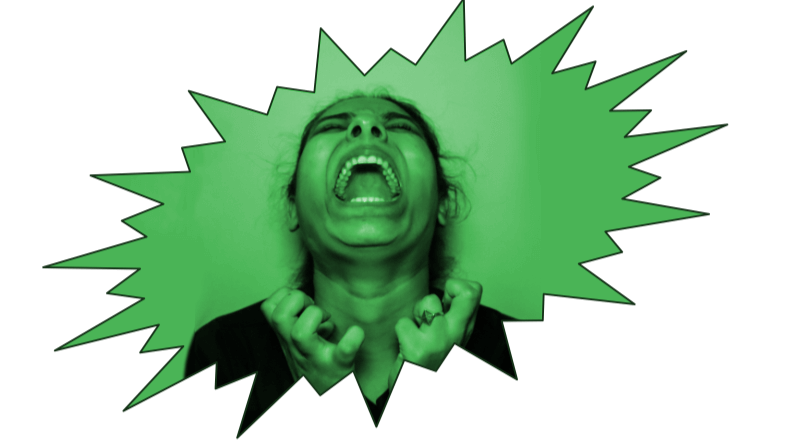
I used to fail on every level of the Aristotle quote. I’d come home and argue with a housemate about the heating. Or I’d avoid calling out family members for a hurtful remark just to explode later, completely out of context.
Once I told off a colleague for never re-stocking the shelves. Oh, I was forceful. He did the work afterwards, of course. But when I had calmed down again—days later—I realised he might not have known that re-stocking was part of the job. Our job training had been haphazard at best. I felt bad, and we never became friends.
Anger
Anger influenced my thoughts and steered my actions because that’s what emotions are there for. They are “the instant plans for handling life that evolution has instilled in us” (Daniel Coleman, Emotional Intelligence). Once an emotion is triggered, it sets off a chain reaction in your body to prepare you for a specific action.
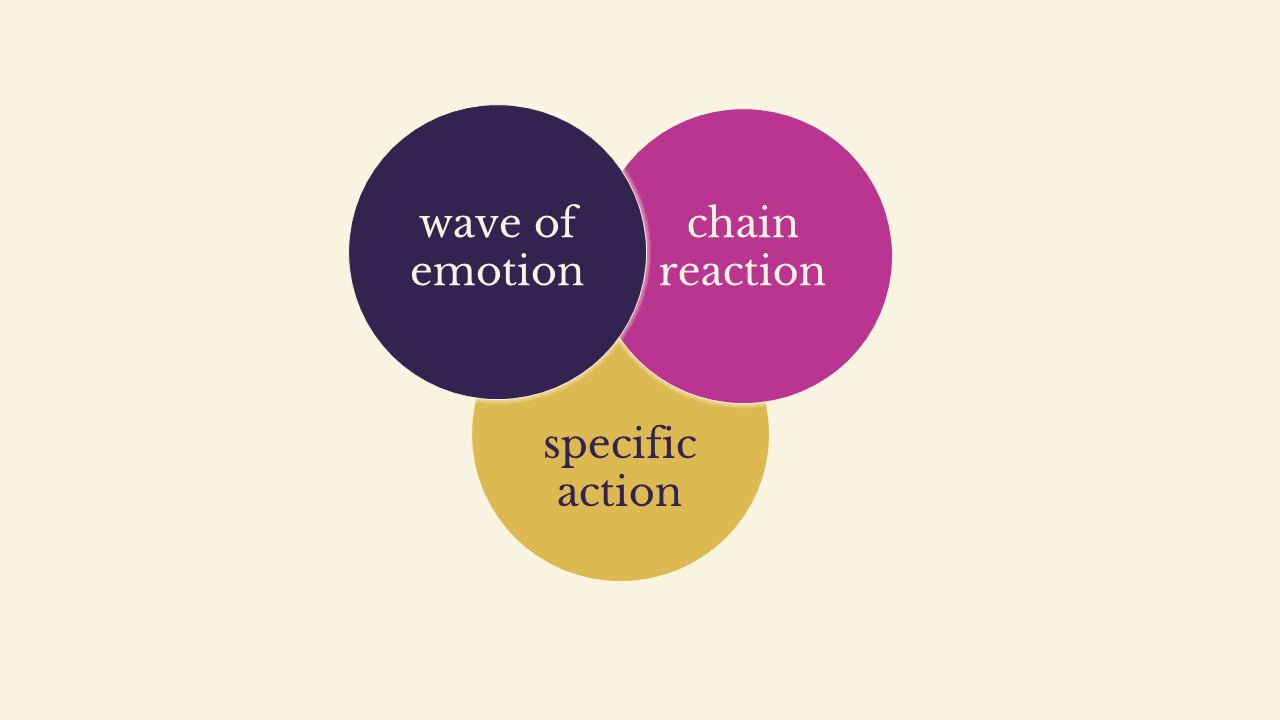
For anger, this action is fight. Neurotransmitters flood your bloodstream. Your heart rate accelerates and you breathe faster. Blood flows into your arms, legs and your head. Your vision narrows, so you can focus on the target of your anger. A burst of energy soars through your body. This is the “instant plan” evolution has instilled in us when we become angry. If the reaction goes unchecked, you will fight.
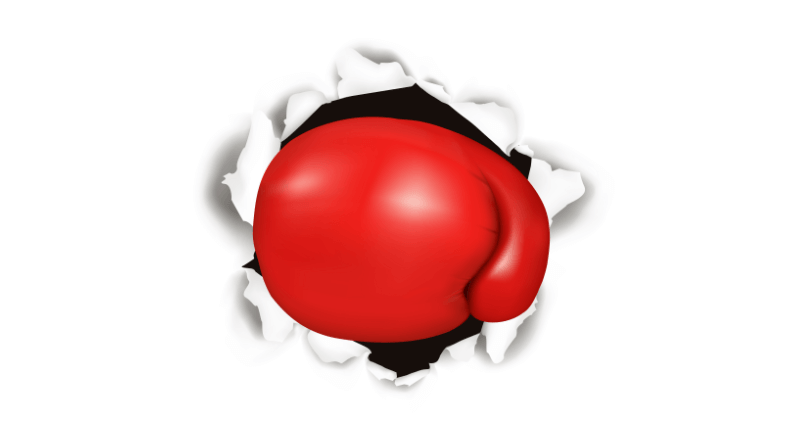
I argued with friends and bosses, had shouting matches with family members and strangers. Far from ideal, far from the person I wanted to be, so I tried “coping” with my anger.
Coping with Emotions
Most of the busywork we do and the bad habits we develop are actually attempts to cope with our emotions. By “cope” I mean ignore and suppress them, just like we’ve been taught to do from an early age on.
“Stop crying! Only weak people cry.”
“It’s no big deal. You’re worrying for nothing!”
Actually, crying is the healthy chain reaction triggered by emotions like sadness or grief. Suppressing your tears means getting into your own way because the sadness lingers longer.
And worrying is a rehearsal. By practising different scenarios and how you would react to them, you prepare yourself, lowering your anxiety levels while you’re at it. When you try to ignore your worries, they get worse. What you resist persists. If you try to avoid certain thoughts, they’ll definitely crop up. Most famous example: Don’t think about elephants.
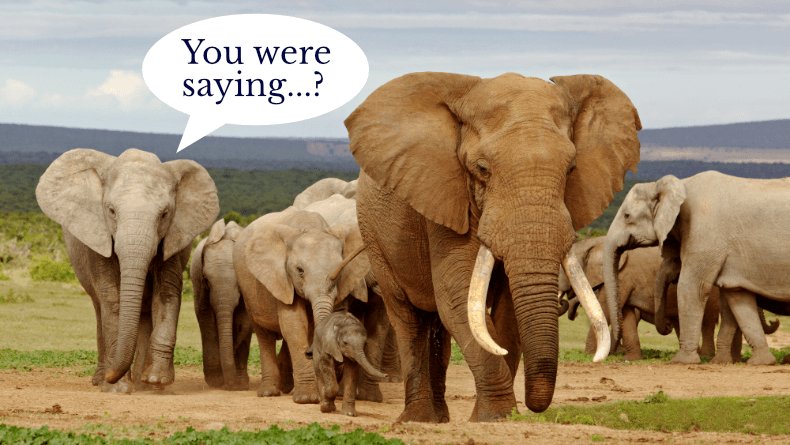
The emotion and the physical chain reaction it triggers aren’t the problem. Both are exactly how nature intended them to be. Things go wrong when we suppress, ignore, or even medicate our feelings.
We drown our sadness in the latest comedy or food and alcohol. Instead of worrying for five minutes and coming up with a game plan, we scroll through social media for an hour or check e-mails for the fiftieth time. We ignore, suppress, and avoid. At all costs. Only, the costs are a lot higher than we realize.
“Coping” with anger
I’ve never been good at lying to myself. Ignoring my anger wasn’t a realistic option. Instead, I turned anger into a part of my identity. “I’m an angry person,” I told myself and others. “It’s just who I am.”
Being an optimist, I made the best of it. I’d noticed all that energy in my body. Why not use it to achieve my goals? Zero motivation to finish the presentation prep for that boring seminar? Stoke the anger. I reminded myself that the teacher was a misogynist who’d implied I was too stupid for university. Tap into the energy and done! 90 minutes of Tai Bo too much? Not after my boyfriend dumped me!
I was even proud of my solution. I had no idea that while I’d glimpsed a tiny part of the truth, I was completely missing the big picture: Anger is just one emotion, one of many, none of which define me.
Emotions and actions
Emotions are not who we are but they influence the actions we take and those actions define us. I made angry decisions and acted out of anger. Those actions made me an angry person. Sometimes I was a cheerful person who shared joy with everyone around me. Often, I was a scared person making decisions based on fear, the kind that kept me from going after my dreams. And occasionally I was a bored person, scrolling through my social media feed.
But how do you handle your emotions in a healthy way? How can we leave busy work and bad habits behind to step into our dream life?
Cue …
Emotional Intelligence
EI is a set of skills. The most important of these skills is self-awareness because it separates your emotions from your actions. By taking the time to notice what is happening in your mind and your body as it happens, you pause.
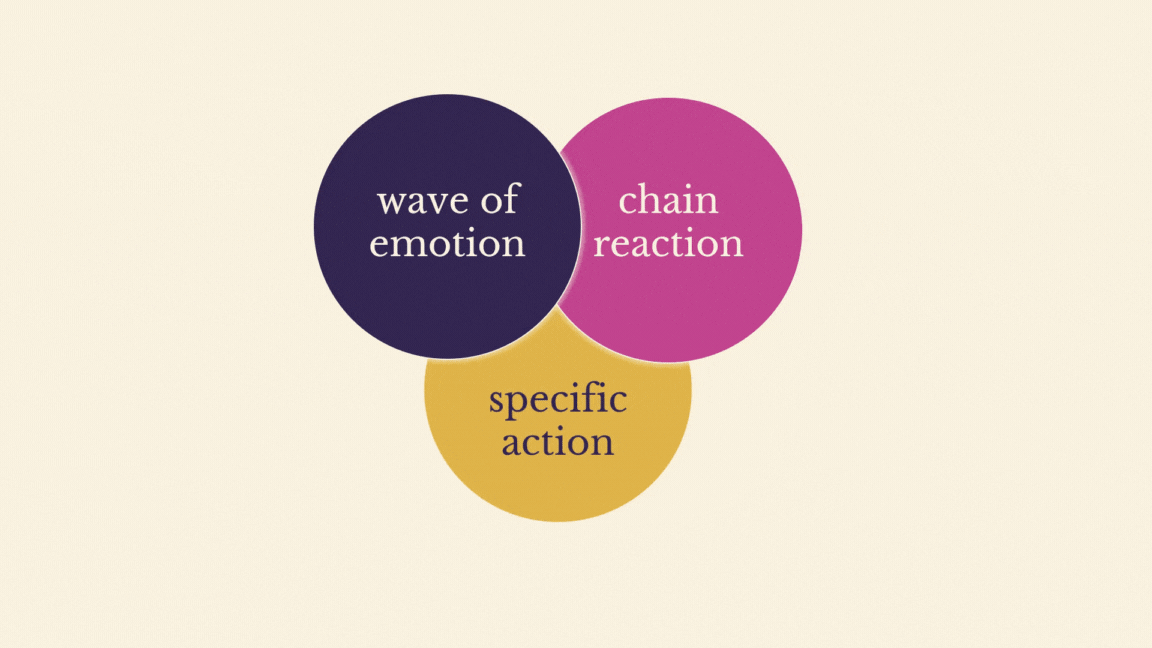
Pause long enough and you can ride out the wave, releasing it safely. Emotions come in waves that last about 2 minutes. Yes, only 2 minutes. Once you’ve felt your feelings and released them, you can make conscious choices and take deliberate actions.
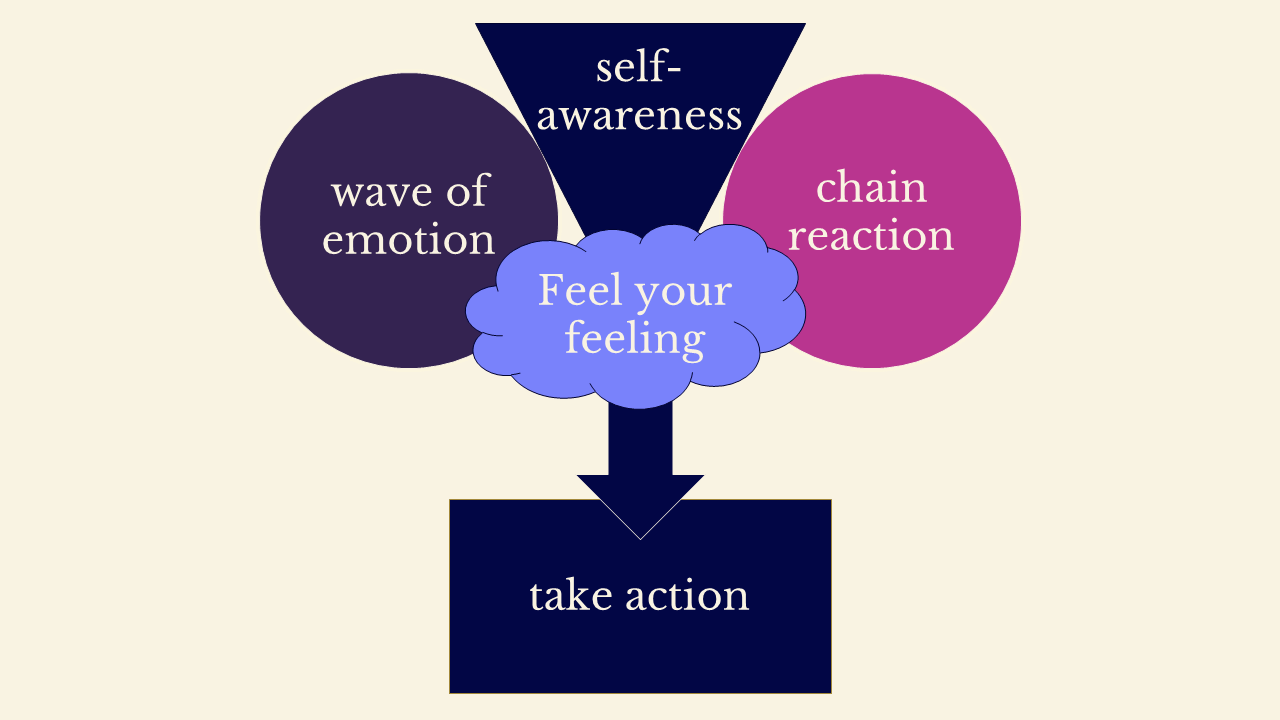
Emotional Intelligence in Action
Here’s what it looks like in real life: A couple of weeks ago I listened to a podcast and the male presenter undermined the female guest by refusing to use the terminology she chose in her book. Instead, he used a different term for her concept, which I thought was rude and disrespectful.
I noticed the mounting wave of anger. Blood rushed into my arms and legs. Energy surged through my body. My vision narrowed into a glare, directed at my phone, where the podcast came from. My heart beat faster.
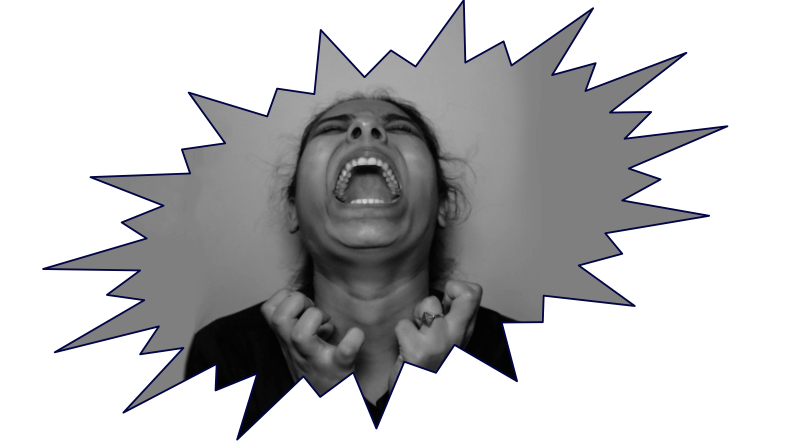
I paused.
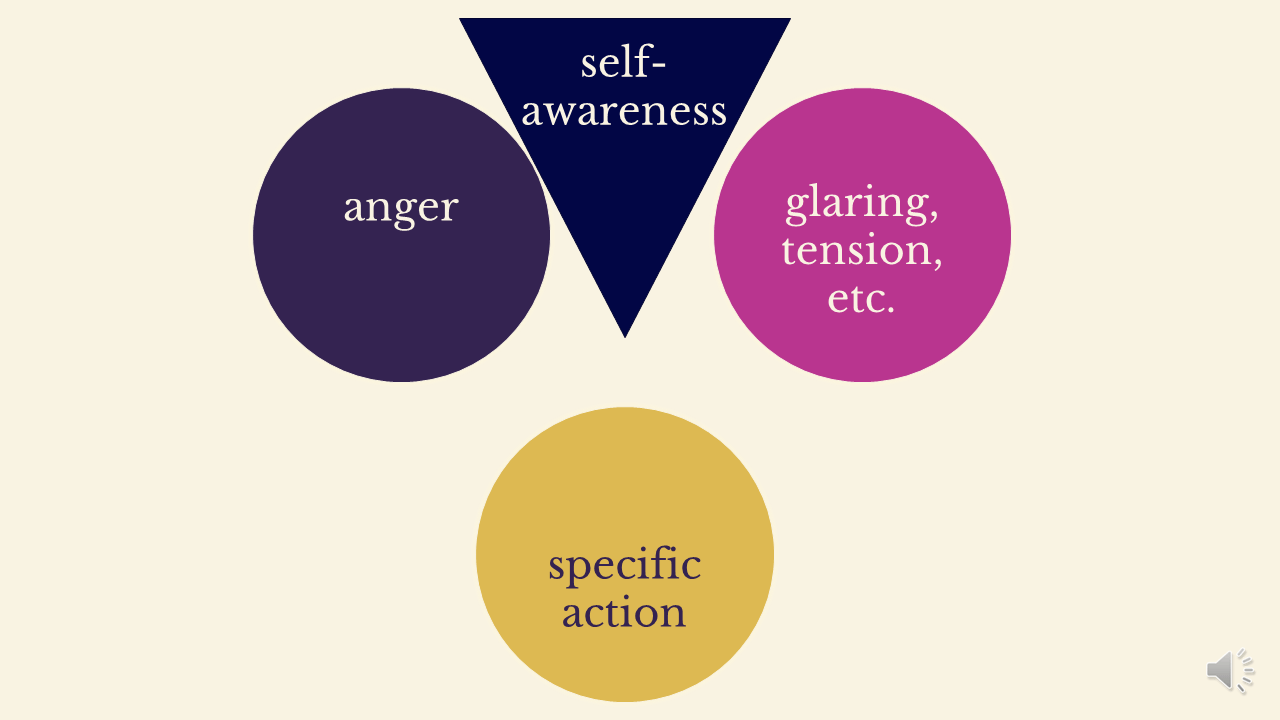
I closed my eyes and took a few calming breaths. My heart rate already slowed down. I felt into my body. Anger is a whooshing in my left side, just below the ribcage, and I focused on it until the sensation lessened.
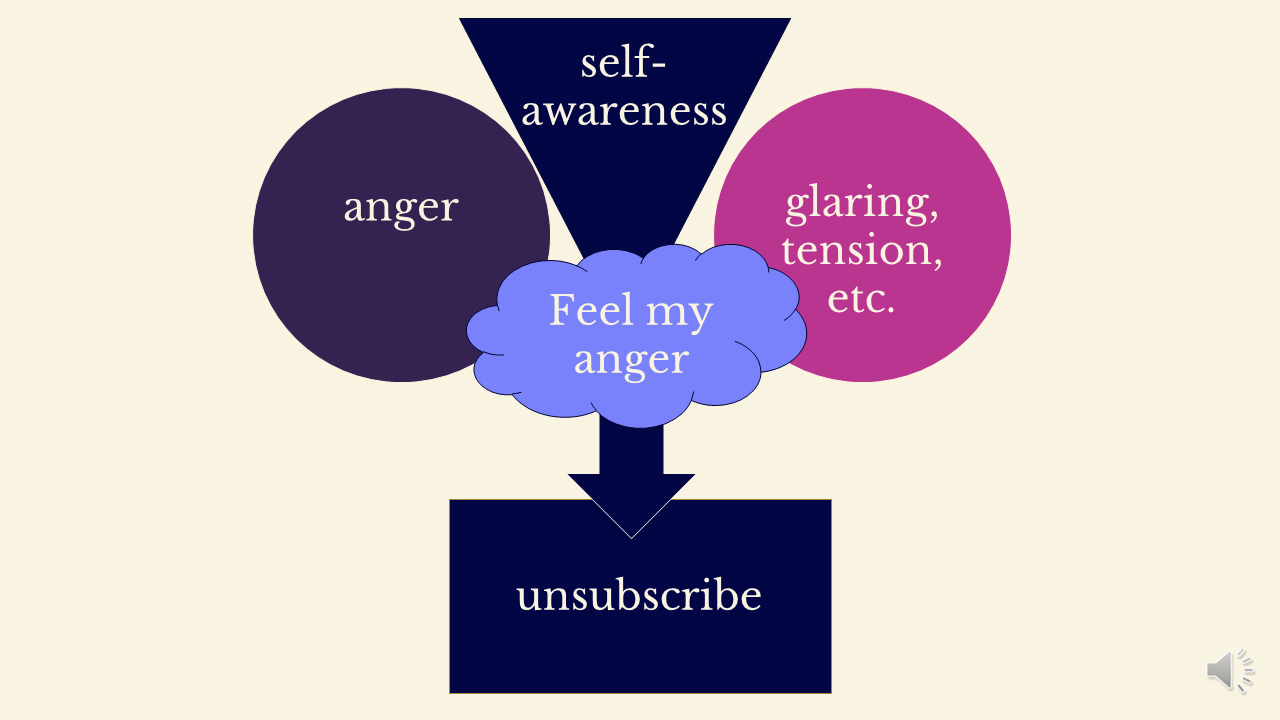
Time for an analysis: The presenter often interrupted female guests and explained points they’d already made clear. He didn’t do either with male guests. I hate misogyny. It makes me angry. His podcast had become a waste of my time. I took action: I hit unsubscribe.
Self-Awareness
Practising the skills that make up emotional intelligence will change your life. Self-awareness is the most essential EI skill because it interrupts the automatic response an emotion triggers in our bodies. This pause allows the rational part of our brain to catch up. When we think clearly, we can analyse a situation, assess and draw conclusions from the data, and finally take the actions we want to define us.
Not sure how to practice self-awareness? Subscribe below to start your practice today!
